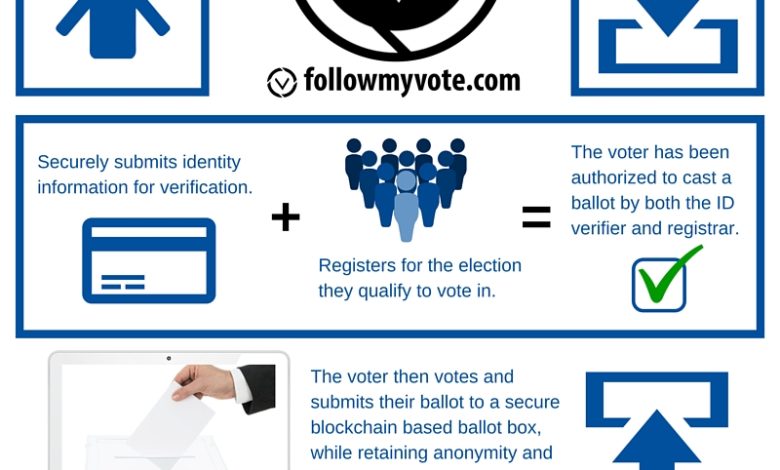Blockchain and Digital Voting Systems

- Understanding the basics of blockchain technology
- The potential of blockchain in revolutionizing voting systems
- Challenges and concerns surrounding digital voting systems
- Exploring the security features of blockchain for voting
- Case studies of countries implementing digital voting systems
- The future of voting: blockchain’s role in shaping democracy
Understanding the basics of blockchain technology
Blockchain technology is a decentralized, distributed ledger system that securely records transactions across a network of computers. Each transaction is stored in a “block” that is linked to the previous block, forming a chain of blocks – hence the name “blockchain.” This technology ensures transparency, security, and immutability of data, making it ideal for applications like digital voting systems.
One of the key features of blockchain technology is its transparency. All transactions are recorded on a public ledger that is accessible to all participants in the network. This transparency helps to prevent fraud and manipulation, as any unauthorized changes to the data can be easily detected by the network.
Another important aspect of blockchain technology is its security. Each block in the chain is encrypted and linked to the previous block using cryptographic techniques. This makes it extremely difficult for hackers to tamper with the data, ensuring the integrity of the information stored on the blockchain.
Immutability is also a crucial characteristic of blockchain technology. Once a block is added to the chain, it cannot be altered or deleted without the consensus of the majority of participants in the network. This feature ensures that the data stored on the blockchain is permanent and cannot be changed retroactively.
Overall, blockchain technology provides a robust and reliable platform for digital voting systems. By leveraging the transparency, security, and immutability of the blockchain, digital voting systems can ensure the integrity of the voting process and provide a trustworthy way for people to cast their votes in elections.
The potential of blockchain in revolutionizing voting systems
Blockchain technology has the potential to revolutionize voting systems by providing a secure and transparent way to conduct elections. By utilizing blockchain, the integrity of the voting process can be ensured, reducing the risk of fraud and manipulation.
One of the key advantages of blockchain in voting systems is its ability to create a tamper-proof record of votes. Each vote is encrypted and recorded on a decentralized ledger, making it nearly impossible to alter or delete without detection. This level of transparency can help build trust in the electoral process.
Furthermore, blockchain can enable real-time verification of votes, allowing for instant and accurate results. This can streamline the counting process and eliminate the need for manual verification, reducing the chances of human error.
Additionally, blockchain technology can enhance voter accessibility by enabling remote and mobile voting options. This can increase voter turnout and participation, especially among populations that face barriers to traditional voting methods.
In conclusion, the potential of blockchain in revolutionizing voting systems is vast. By leveraging this technology, we can create a more secure, transparent, and efficient electoral process that empowers citizens and strengthens democracy.
Challenges and concerns surrounding digital voting systems
There are several challenges and concerns surrounding the implementation of digital voting systems, particularly those utilizing blockchain technology. One major concern is the issue of security. While blockchain is known for its security features, there are still vulnerabilities that could be exploited by malicious actors. Ensuring the integrity of the voting process and protecting against hacking attempts is crucial for the success of digital voting systems.
Another challenge is the issue of accessibility. Not everyone has access to the internet or the technology required to participate in digital voting. This could potentially disenfranchise certain groups of voters, leading to concerns about the fairness and inclusivity of the voting process. Finding ways to make digital voting systems accessible to all eligible voters is essential for upholding democratic principles.
Additionally, there are concerns about the transparency and auditability of digital voting systems. While blockchain technology can provide a secure and transparent record of transactions, there are still questions about how to ensure that votes are recorded and counted accurately. Without a clear way to audit the results, there is a risk of voter fraud or manipulation of the voting process.
Exploring the security features of blockchain for voting
Blockchain technology offers a range of security features that make it an attractive option for digital voting systems. One of the key features is **transparency**, as all transactions are recorded on a public ledger that is **immutable** and **tamper-proof**. This means that once a vote is cast, it cannot be altered or deleted, ensuring the integrity of the voting process.
Another important security feature of blockchain is **decentralization**. Traditional voting systems are often centralized, making them vulnerable to **hacks** and **fraud**. By using a decentralized blockchain network, voting data is distributed across multiple nodes, making it much more **secure** and **resilient** to attacks.
Blockchain also offers **encryption** to protect the privacy of voters. Each vote is encrypted and can only be accessed by authorized parties, ensuring that sensitive information remains confidential. Additionally, blockchain technology can enable **smart contracts** to automate the voting process, reducing the risk of human error and **manipulation**.
Overall, the security features of blockchain make it a promising solution for digital voting systems. By leveraging **transparency**, **decentralization**, and **encryption**, blockchain can help ensure the **integrity** and **security** of the voting process, **building** trust among voters and **strengthening** democracy.
Case studies of countries implementing digital voting systems
Several countries around the world have started implementing digital voting systems using blockchain technology to enhance the security and transparency of their electoral processes. Let’s take a look at some case studies of countries that have successfully adopted digital voting systems:
- Estonia: Estonia is known for being a pioneer in digital voting, having implemented an online voting system since 2005. The country’s e-voting system allows citizens to vote from anywhere in the world using their national ID card or mobile ID. The use of blockchain technology ensures the integrity and security of the voting process.
- Switzerland: Switzerland has also embraced digital voting by piloting a blockchain-based voting system in some of its regions. The system allows voters to cast their ballots securely and anonymously, while also providing transparency and auditability to the electoral process.
- South Korea: South Korea has been exploring the use of blockchain technology in its voting systems to increase voter turnout and streamline the electoral process. By leveraging blockchain, the country aims to enhance the security and efficiency of its elections.
- United States: Some states in the United States have started experimenting with digital voting systems powered by blockchain technology. These systems aim to address issues such as voter fraud and enhance the accessibility of voting for all citizens.
Overall, the implementation of digital voting systems using blockchain technology has the potential to revolutionize the way elections are conducted, making them more secure, transparent, and accessible to all eligible voters.
The future of voting: blockchain’s role in shaping democracy
Blockchain technology has the potential to revolutionize the way we vote and shape the future of democracy. By leveraging the security and transparency of blockchain, digital voting systems can offer a more secure and efficient way for people to cast their votes.
One of the key benefits of using blockchain for voting is its ability to provide a tamper-proof and immutable record of all transactions. This means that once a vote is cast, it cannot be altered or deleted, ensuring the integrity of the voting process.
Furthermore, blockchain can help increase voter turnout by making the voting process more convenient and accessible. With digital voting systems, voters can cast their ballots from anywhere with an internet connection, eliminating the need to physically go to a polling station.
Additionally, blockchain technology can help prevent fraud and ensure that each vote is counted accurately. By using cryptographic algorithms and decentralized networks, digital voting systems can verify the identity of voters and secure the integrity of the voting process.
In conclusion, blockchain technology has the potential to play a significant role in shaping the future of democracy by making the voting process more secure, transparent, and accessible. As digital voting systems continue to evolve, we can expect to see an increase in the use of blockchain technology in elections around the world.



